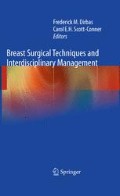Abstract
Antineoplastic therapies can be classified as either cytotoxic systemic chemotherapy or targeted biological therapy. In many ways, cytotoxic chemotherapy is “targeted” at specific molecules that regulate progression through the cell cycle; however, these targets are generally not specific for tumor cells. Because systemic cytotoxic chemotherapy targets all rapidly dividing cells, it also attacks hair follicles, gastrointestinal mucosa, and hematopoietic cells thereby inducing the classical side effects of treatment such as alopecia, nausea, diarrhea, mucositis, and bone marrow suppression. The newer generation of targeted biological therapies is still administered systemically as traditional chemotherapy; however, these drugs are unique in that they are designed to target specific molecular components in tumor cell biology with the hope of minimizing cytotoxicity to noncancerous cells. In addition, they have toxicities specific to their mechanism of action. This chapter provides an overview of the biology of systemic therapy for breast cancer.
Access this chapter
Tax calculation will be finalised at checkout
Purchases are for personal use only
References
Goldie J. Scientific basis for adjuvant and primary (neoadjuvant) chemotherapy. Semin Oncol. 1987;14:1.
DeVita V. The evolution of therapeutic research in cancer. N Engl J Med. 1978;298:907.
Skipper H, Schabel F, Mellet L, et al. Implications of biochemical, cytokinetic, pharmacologic and toxicologic relationships in the design of optimal therapeutic schedules. Cancer Chemother Rep. 1950;54:431.
Norton L. A Gompertzian model of human breast cancer growth. Cancer Res. 1988;48:7067.
Citron M, Berry D, Cirrincione C, et al. Randomized trial of dose-dense versus conventionally scheduled and sequential versus concurrent combination chemotherapy as postoperative adjuvant treatment of node-positive primary breast cancer: First report of Intergroup trial C9741/Cancer and Leukemia Group B Trial 9741. J Clin Oncol. 2003;21:1431–9.
Glaspy J. Hematopoietic management in oncology practice. Part 1. Myeloid Growth Factors. Oncology. 2003;17:1593.
Atkinson A, Daniels C, Dedrick R, et al. Principles of clinical pharmacology. San Diego: Academic; 2001.
Ratain M, Mick R. Principles of pharmacokinetics and pharmacodynamics. New York: Marcel Dekker; 1996.
Evans W, McLeod H. Pharmacogenomics- drug disposition, drug targets, and side effects. N Engl J Med. 2003;348:538.
Goetz M, Rae J, Suman V, et al. Pharmacogenetics of tamoxifen biotransformation is associated with clinical outcomes of efficacy and hot flashes. J Clin Oncol. 2005;23:9312–8.
Early Breast Cancer Trialists’ Collaborative Group. Tamoxifen for early breast cancer: an overview of the randomised trials. Lancet. 1998;351:1451–67.
Baum M, Buzdar A, Cuzick J, et al. Anastrozole alone or in combination with tamoxifen versus tamoxifen alone for adjuvant treatment of postmenopausal women with early-stage breast cancer: results of the ATAC trial efficacy and safety update analyses. Cancer. 2003;98:1802–10.
Fisher B, Costantino J, Wickerham D, et al. Tamoxifen for prevention of breast cancer: report of the national surgical adjuvant breast and bowel project P-1 study. J Natl Cancer Inst. 1998;90:1371–88.
Ingle J, Suman V, Rowland K, et al. Fulvestrant in women with advanced breast cancer after progression on prior aromatase inhibitor therapy: North Central Cancer Treatment Group Trial N0032. J Clin Oncol. 2006;24(7):1052–6.
Cobleigh M, Vogel C, Tripathy D, et al. Multinational study of the efficacy and safety of humanized anti-HER2 monoclonal antibody in women who have HER2-overexpressing metastatic breast cancer that has progressed after chemotherapy for metastatic disease. J Clin Oncol. 1999;17(9):2639–48.
Geyer C, Forster J, Lindquist D, et al. Lapatinib plus capecitabine for HER2-positive advanced breast cancer. N Engl J Med. 2006;355(26):2733–43.
Miller K, Wang M, Gralow J, et al. Paclitaxel plus bevacizumab versus paclitaxel alone for metastatic breast cancer. NEJM. 2007;357(26):2666–2676.
Author information
Authors and Affiliations
Corresponding author
Editor information
Editors and Affiliations
Rights and permissions
Copyright information
© 2010 Springer New York
About this chapter
Cite this chapter
Haddad, T., Yee, D. (2010). Basic Principles of Antineoplastic Therapies. In: Dirbas, F., Scott-Conner, C. (eds) Breast Surgical Techniques and Interdisciplinary Management. Springer, New York, NY. https://doi.org/10.1007/978-1-4419-6076-4_58
Download citation
DOI: https://doi.org/10.1007/978-1-4419-6076-4_58
Published:
Publisher Name: Springer, New York, NY
Print ISBN: 978-1-4419-6075-7
Online ISBN: 978-1-4419-6076-4
eBook Packages: MedicineMedicine (R0)

